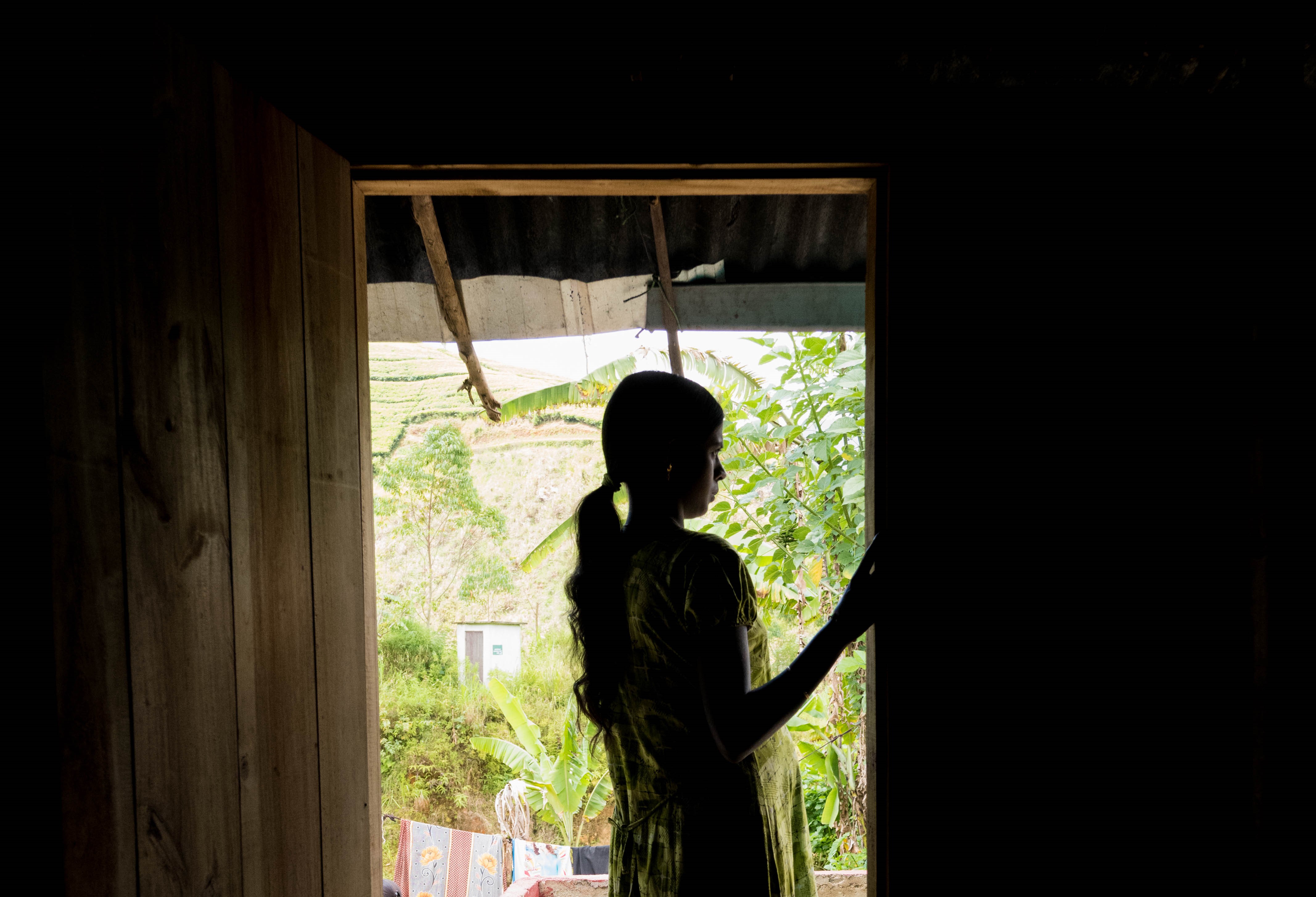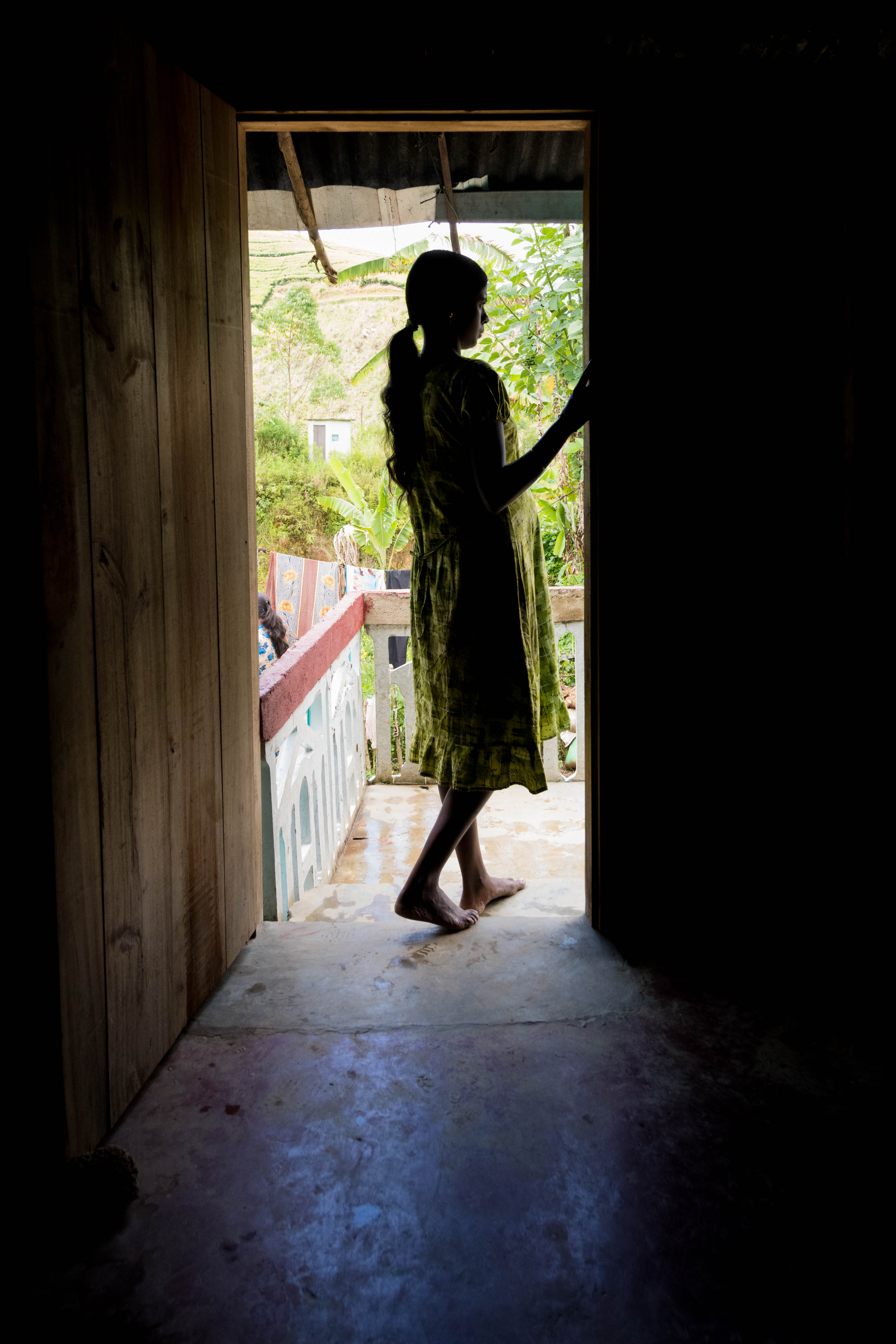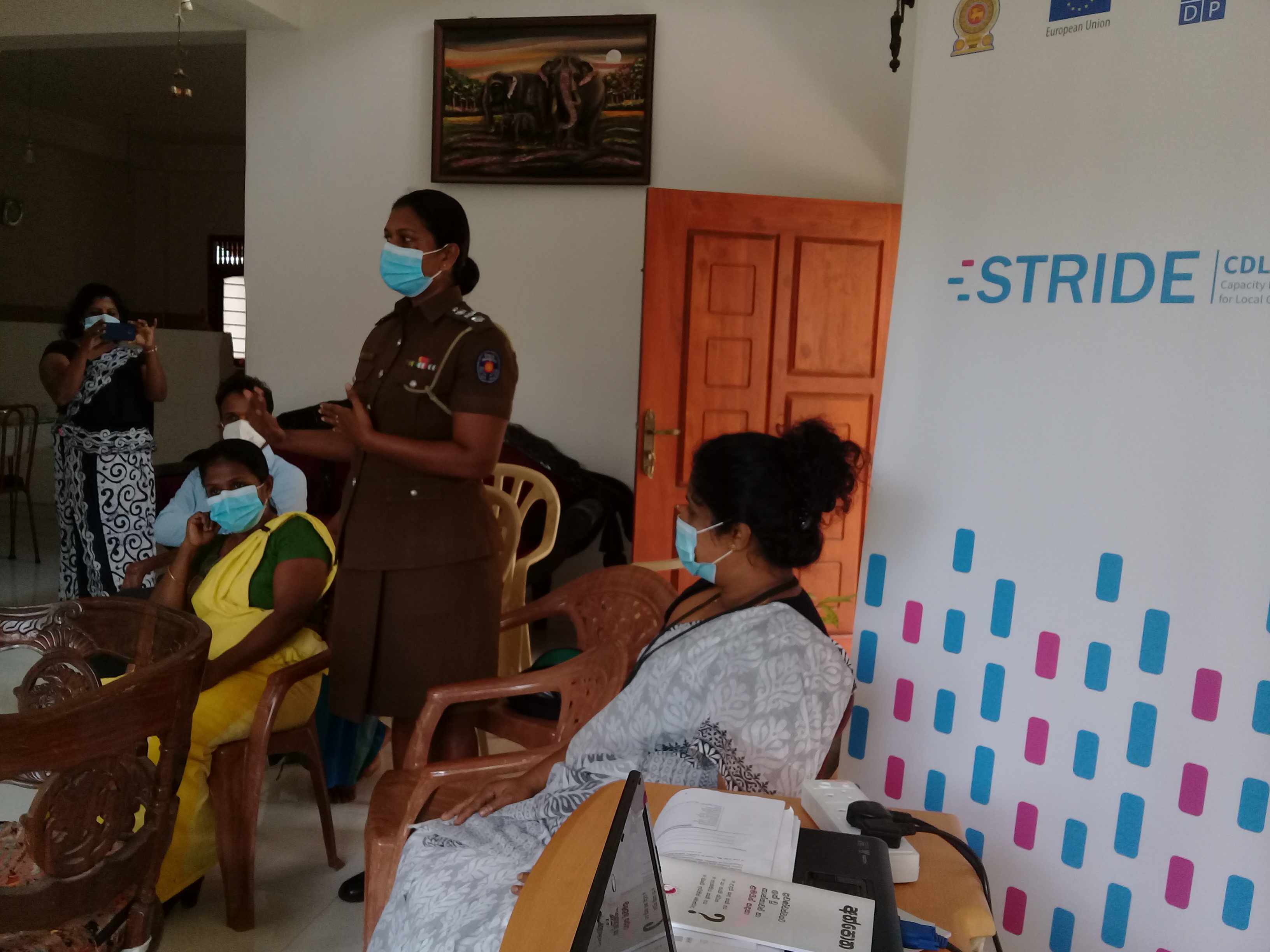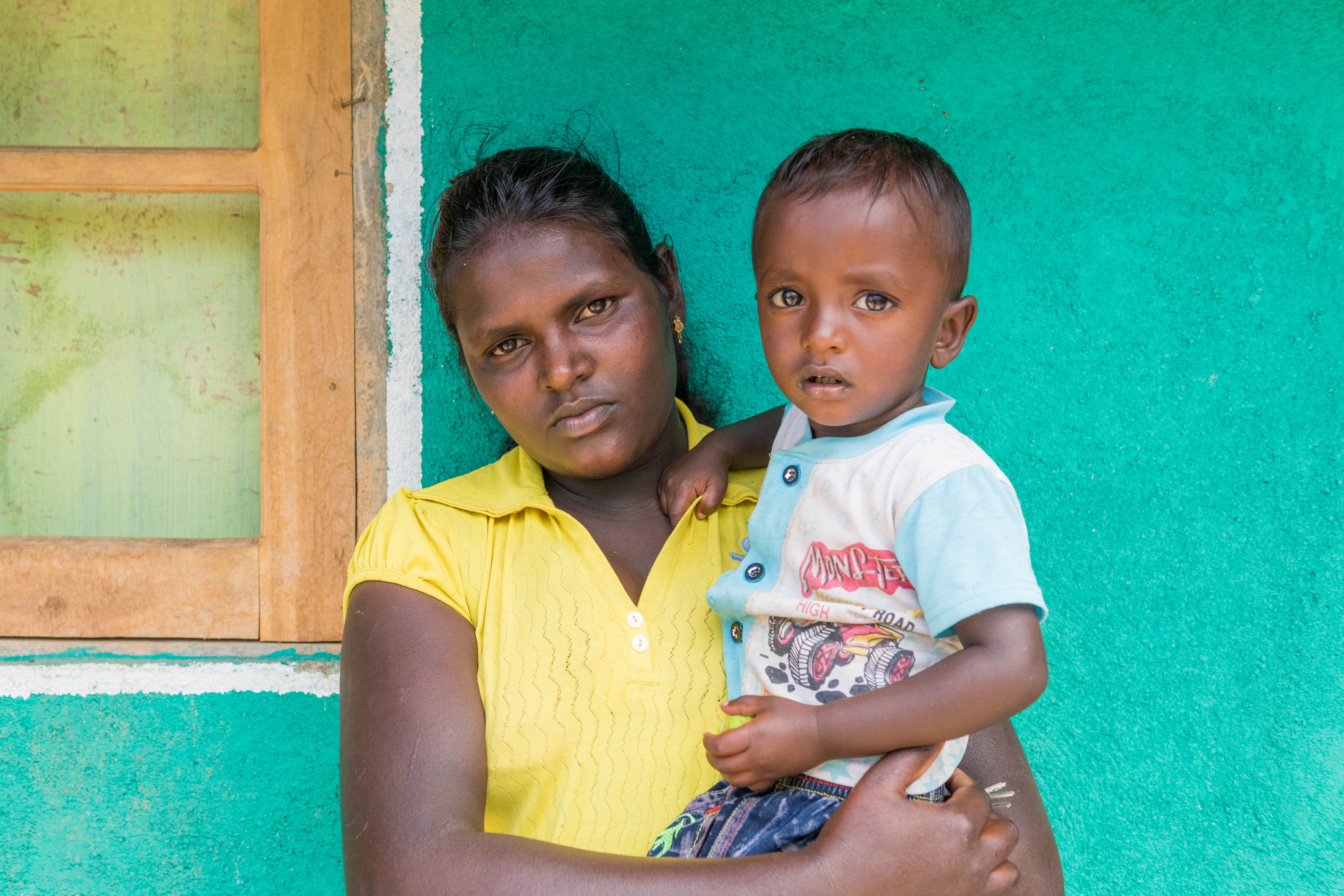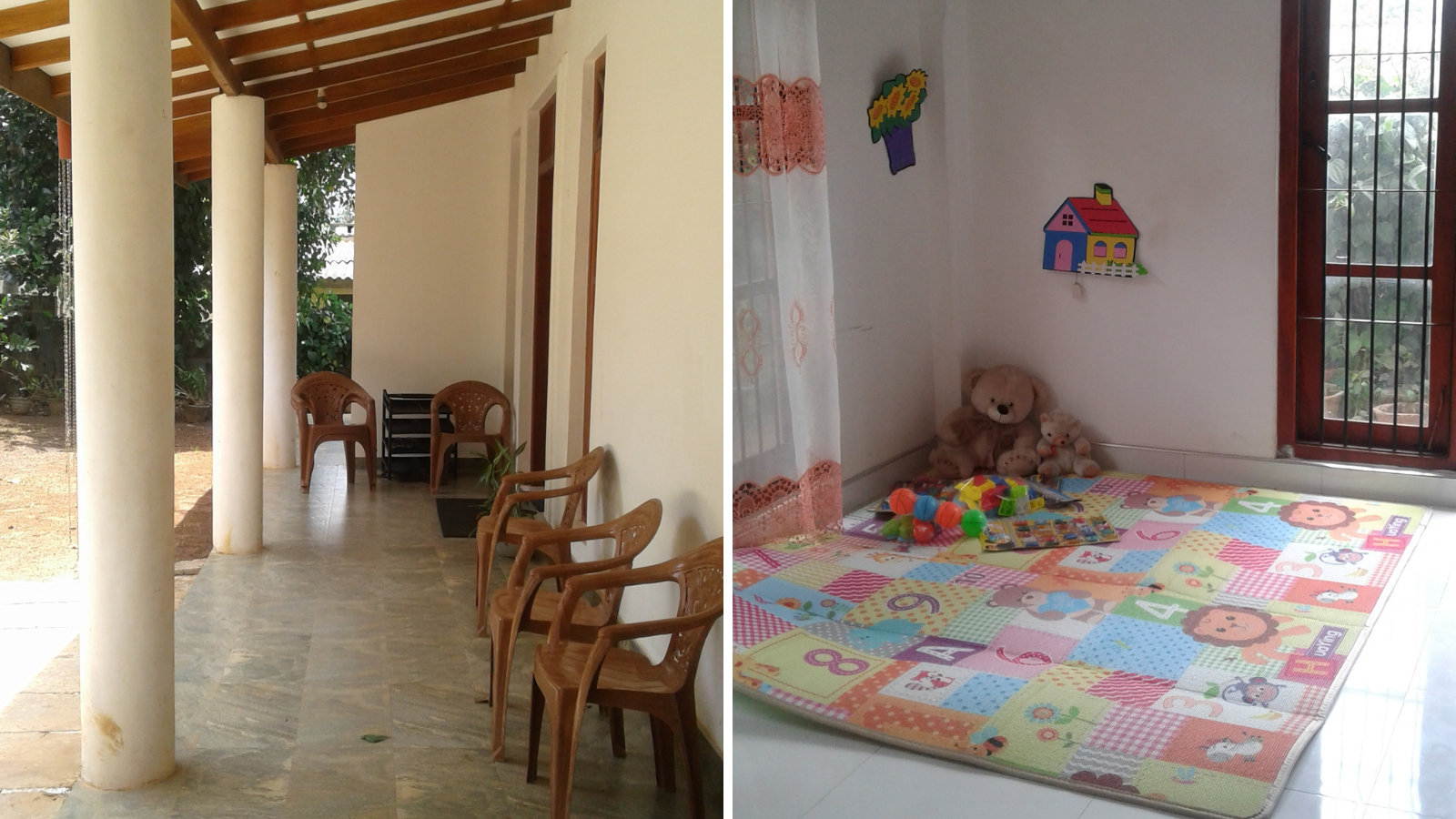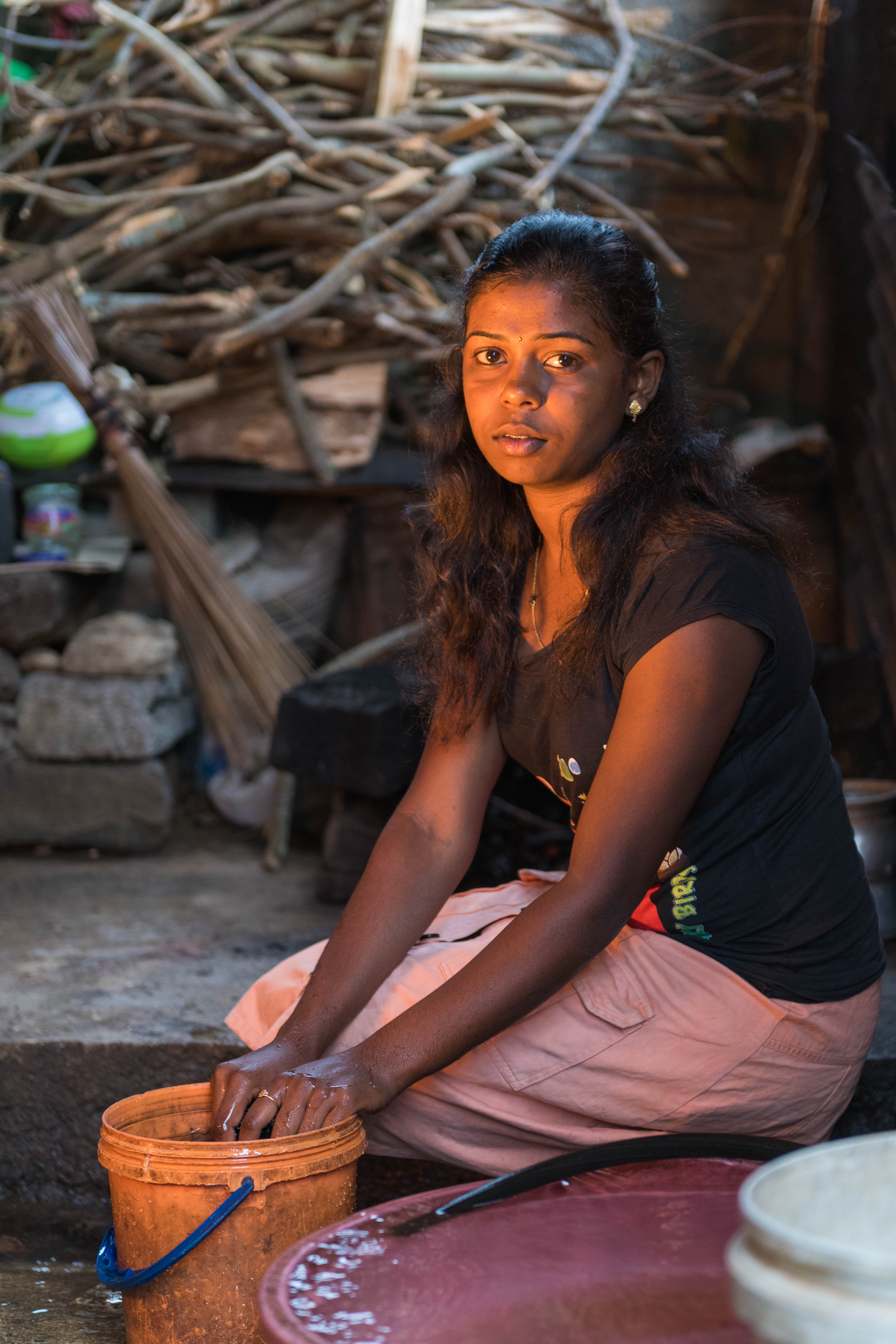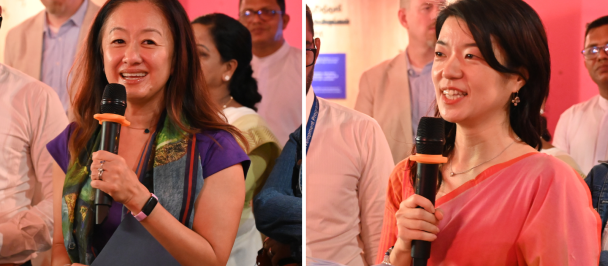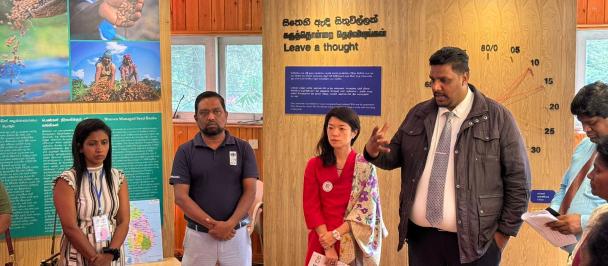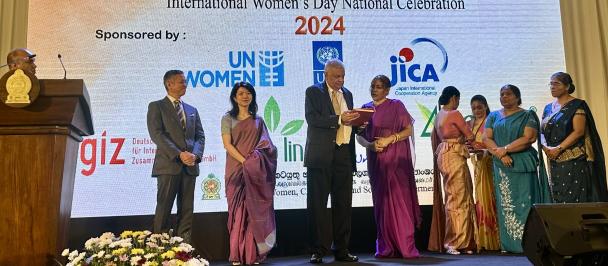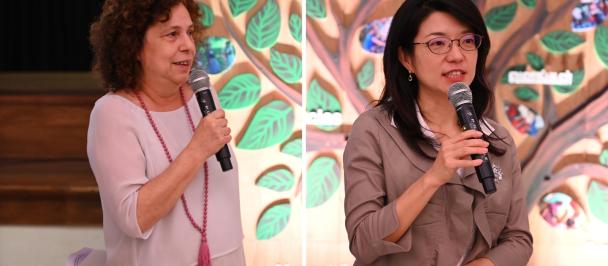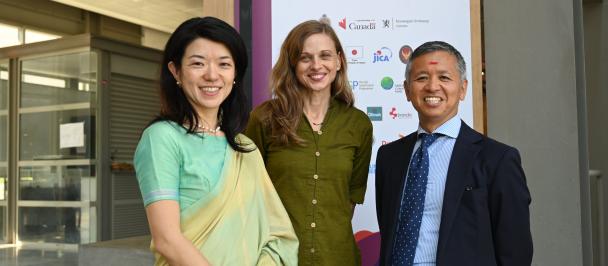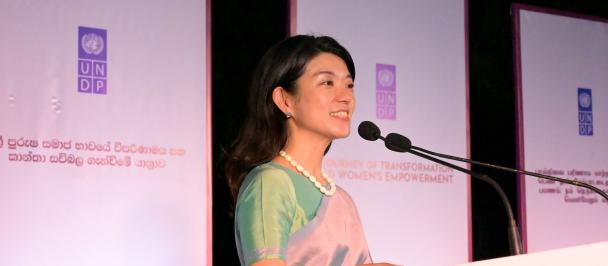Providing safe shelters to women in Anuradhapura
A safe space for everyone
April 28, 2021
Today we live in a world, where life has changed significantly from the way things were in the past. Many things that we accepted as the way of life have changed in the blink of an eye. The Anuradhapura district in Sri Lanka, known for its rich history, is home to Sri Lankans from every walk of life ranging from religion, ethnicity and economic status. After the end of the three-decade long conflict, challenges in the area were many, with women bearing the brunt of it due to it being a district that bordered areas of open conflict and hence were affected by the effects of war, such as missing family members, widows, and many that were left injured or disabled.
COVID-19, both a health and a socio-economic challenge globally brought about its own set of issues due to the lockdown restrictions early last year. In 2019, according to the Grave Crimes Abstract, a total of 1,779 cases of rape were reported by women and girls in Sri Lanka. Since the COVID-19 outbreak, there has been a surge in the number of SGBV cases being reported to the 1938 National 24-hour Helpline for Women and to the Women In Need (WIN) helpline. One of the most serious issues was the significant rise in domestic violence and sexual and gender-based violence (SGBV) incidents targeting women and girls which included cases of assault, harassment, and sexual harassment with a staggering 800 incidents reported in the Anuradhapura district alone.
Nandani*, had suffered serious injuries to her eye during curfew, and was referred to WIN by the Police Women and Children’s Desk in Anuradhapura. She was subjected to domestic violence, including severe emotional, physical and sexual violence at the hands of her husband and his mistress. When she was referred to WIN, she was severely traumatized and was even contemplating taking her own life. Following psychological counseling, she was admitted to the Anuradhapura hospital and spent 4 days there. She did not have a safe place to return to, as there was no women’s shelter in the Anuradhapura district during this time.
No safe space
Due to quarantine curfew and travel restrictions, WIN Anuradhapura could not transfer Nandani to its shelter in Colombo and had to resort to looking for an alternative for her. She was able to stay at an Araamaya (Buddhist temple) for few days until the curfew was lifted and inter-district travel was permitted. Nandani was given shelter facilities in Colombo for 2 months and thereafter a legal case was initiated by Anuradhapura WIN against her husband for assault and grievous hurt.
However, her husband did not take this well and went on to threaten the WIN staff in Anuradhapura for helping Nandani. As a graduate and educated young woman, she was able to secure a job at the Divisional Secretariat in Thalawa, Anuradhapura. However, the husband’s threats continued, and he tried in vain to intimidate her to not take this job. But Nandani persisted, and it was at this point that the District Secretary and WIN intervened to facilitate a safe workplace for her. This incident highlighted and triggered the grave need to have a safe shelter within the Anuradhapura district.
Shelter Opening in Anuradhapura
The United Nations Development Programme (UNDP) in Sri Lanka stepped up to the cause through its immediate COVID-19 support and together with the District Secretary supported WIN to establish a shelter in Anuradhapura.
Home is where you should feel safe. Being at home means, above all else, being in a place that is dear to you with your loved ones. It should mean protection. But for many, home is a place of violence. This became more apparent during the lockdown with women being restricted to the four walls at home and having to spend longer periods with their partners due to travel restrictions and loss of employment for many. Increase in alcohol and drug abuse by men and women in this area, have also created space for violence and abuse of women. Additionally, a rise in cases of cyber bullying and harassment of women in the Anuradhapura district was evident with the high use of mobile phones and social media for long stretches of time due to perpetrators taking advantage of the lack of focus on such cases by authorities and the helplessness and isolation of many victims during the pandemic.
Interruptions in maintenance payments to women through ongoing court cases due to the closure of courts during the lockdown was another issue that arose during this period. The lack of source of income to make payments, taking care of their children during this difficult time have been intricately linked to this challenging family environment, which saw a noticeable rise in child abuse cases including sexual abuse in the Anuradhapura district.
During this critical time, WIN provided a variety of essential services to survivors of abuse, supporting more than 800 vulnerable women and children. In collaboration with the Federation of Civil Society Organizations and NGO Forum, a Sahana Sansada Jaalaya (relief forum) was created, where more than 600 vulnerable women were provided with access to counselling and legal advice, dry rations to families in need and temporary care to women who faced domestic violence. Working closely with the Divisional Secretariat and Grama Niladharis in the area, WIN also assisted 200 vulnerable families to receive the Rs. 5000 emergency relief allowance facilitated by the Government of Sri Lanka.
Center Manager for WIN Anuradhapura, Ms. Kumari Herath noted, “WIN never stopped working even during the COVID-19 curfew. Women and child survivors were given the required services to address the abuse or violence they had encountered. WIN has a strong team here in Anuradhapura and we will extend our support to all the victims of SGBV in the Anuradhapura district.”
Over the years, UNDP in Sri Lanka has worked closely with civil society organizations, such as WIN, on the ground to expand and strengthen the linkages with governmental and non-governmental institutions. The multi-sectoral referral system developed in 2014 with the support of UNDP and the then Ministry of Child Development and Women’s Affairs, together with relevant stakeholders played a pivotal role during this unprecedented emergency, as key stakeholders were now aware on how to respond when referring SGBV victims. In 2020, the SGBV referral system was updated with the inclusion of COVID-19 safeguards as well. This support and guidance has enabled partners such as WIN to provide services to a number of SGBV victims, create support and alert groups, so that they can detect and assist women and children vulnerable to SGBV in the area.
COVID-19 Response
Following a Rapid Assessment of SGBV and shelter needs undertaken internally by UNDP, projects such as the Capacity Development of Local Governments (CDLG) project allocated funds towards SGBV response, with a view of enhancing local level action towards addressing SGBV while ensuring participation of women, especially women leaders at local level to deliver better on these initiatives. The CDLG project is a four-year initiative (2020-2023) implemented by UNDP as part of the European Union’s STRIDE (Strengthening Transformation, Reconciliation and Inclusive Democratic Engagement) programme focused on strengthening the capacities of local government authorities to be inclusive, responsive and accountable, and improve service delivery.
To address this immediate need during COVID-19, CDLG supported the expansion of the shelter support system by working together with WIN to open doors to a safe shelter in Anuradhapura for survivors of SGBV in the area and can provide services to 15 women. The shelter run by the Raja Rata Praja Kendraya in Anuradhapaura was also supported through CDLG project to expand the shelter services during this period, to provide a safe haven for adolescent girls and women who have become pregnant due to SGBV incidents.
Speaking about the support extended, CDLG Project Manager of UNDP in Sri Lanka, Navaneethan Vijayakumar added, “With the financial support of the European Union, the CDLG stepped up to support these vulnerable women during these difficult times. Moving forward, we intend to continue working closely with grassroot level CSOs that have extensive experience on the ground supporting shelters, providing legal assistance and counselling to survivors of SGBV and other vulnerable women, and link them with women elected officials at the local level, so that these women leaders can raise and address these issues within their communities at policy level.”
Renewed purpose in life
Nandani*, now has a renewed purpose in life and looks to the future. “I reached out for help at a point in my life when I did not want to live a second longer. But I was strengthened, through psychological counselling, emotional support and courage I received through WIN, I was empowered to stand on my own two feet. Not only am I benefiting from these services, but I am also sharing my experiences with other women like me and encouraging them to live a life free of violence.” Nandani has gone on to become an advocate within her community and at her workplace. By creating awareness on avenues to reach out for help through the 2six4 app, and referring women to WIN Anuradhapura, she has built a network in the village where women are able to raise their voices against violence.
With continued support from the project, WIN together with UNDP intends to further strengthen networks created with the Government, CSOs and other partners, and work with women elected councilors in the area through the CDLG project, to highlight and bring to the forefront the grave issues that have intensified during this shadow pandemic.
COVID-19 has changed the way in which we all live, and life will never be the same for any of us. Governments, CSOs and partners such as UNDP all have a part to play in reducing inequalities and preventing re-victimization of vulnerable groups, such as persons with disabilities, women-headed households and women and girls who are survivors of SGBV. Advocacy and creating awareness for change is important. After all, a home is not a home, if it is not a safe space for everyone.
*Names, identities and pictures used in this story have been changed for the safety of survivors

 Locations
Locations